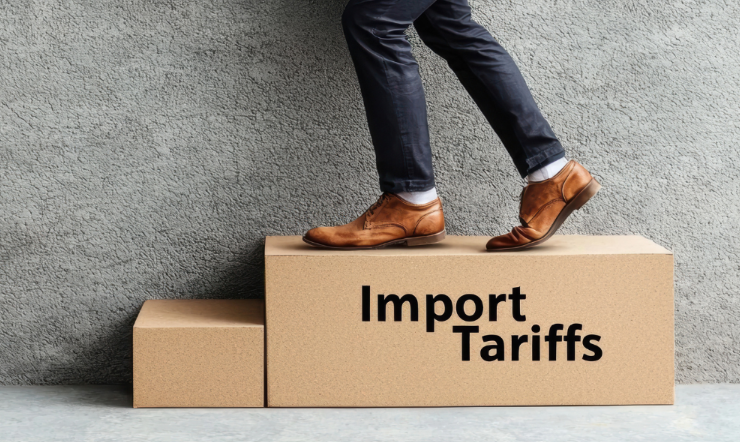

President Trump has announced that he will temporarily exempt most Mexican and Canadian exports from new tariffs for one month, ensuring that products traded under the United States-Mexico-Canada Agreement (USMCA) will not be subject to additional fees. This decision follows mounting concerns from business leaders and policymakers about the economic impact of escalating trade restrictions.
The move comes after Trump delayed imposing 25 percent tariffs on automakers, who warned that such levies could significantly harm the U.S. automotive industry.
Trump’s evolving stance on tariffs has caused instability in financial markets over the past week. Initially, his administration imposed broad tariffs on both Canada and Mexico before gradually easing some of them. This back-and-forth has created uncertainty for industries that rely on cross-border trade, which accounts for a significant portion of U.S. imports and exports.
Following conversation with Mexican President Claudia Sheinbaum and Canada Prime Minister Justin Trudeau, Trump agreed to pause tariffs on most imports until April 2.
He also emphasized that both countries are working closely on border security issues, including efforts to prevent illegal immigration and combat fentanyl trafficking.
Sheinbaum responded to the decision with gratitude, stating that she had an “excellent and respectful” conversation with Trump and that their collaboration was producing “unprecedented results.”
Despite Trump’s announcement, financial markets remain volatile. The S&P 500 initially rose after Commerce Secretary Howard Lutnick suggested that all USMCA-traded goods would likely be exempt, but it later fell 2.12%, as of 2.23pm ET, as investors reacted to Trump’s decision. The Nasdaq was faring even worse as it dropped 2.2%, as of 2.50pm ET.
Concerns persist about how the administration’s broader trade policies will impact businesses, particularly as additional tariffs loom in the coming weeks.
While most Mexican and Canadian goods will be spared for now, approximately 10 percent of Mexican exports to the U.S. do not fall under USMCA provisions. According to William Jackson, chief emerging markets economist at Capital Economics, this includes certain automobiles and machinery.
“In both cases, this is because producers have found it burdensome to comply with regional content requirements needed for tariff-free trade,” Jackson explained. He cited BMW’s decision to import vehicles from its factory in San Luis Potosí, Mexico, under standard tariffs rather than meeting USMCA’s content rules.
The White House estimates that 62% of Canadian imports will still be subject to the tariffs, most of which are energy products that are being tariffed at a 10% rate.
Despite this temporary relief for Mexico and Canada, Trump’s administration is moving forward with a broader tariff strategy. A 25 percent tariff on steel and aluminum is set to take effect on March 12. Additionally, on April 2, Trump is expected to announce new tariffs on auto imports and introduce “reciprocal” trade measures aimed at matching the tariff levels set by other countries.
Trump’s economic advisers argue that these measures will not lead to sustained inflation. However, Treasury Secretary Scott Bessent acknowledged that there could be a temporary rise in prices.
“Can tariffs be a one-time price adjustment? Yes,” Bessent said at the Economic Club of New York.
Despite concerns, Bessent maintained confidence in the administration’s broader economic strategy, citing deregulation and increased energy production as factors that would help stabilize the economy.
“Across a continuum, I’m not worried about inflation,” he added.
With additional tariffs set to take effect soon, businesses and policymakers remain on edge, closely watching whether Trump’s latest trade maneuvers will provide stability or further disruption.

Quarterly analysis of retirement accounts highlights positive behavior.

Insiders say the Wall Street giant is looking to let clients count certain crypto holdings as collateral or, in some cases, assets in their overall net worth.

The two wealth tech firms are bolstering their leadership as they take differing paths towards growth and improved advisor services.

“We think this happened because of Anderson’s age and that he was possibly leaving,” said the advisor’s attorney.

The newly appointed leader will be responsible for overseeing fiduciary governance, regulatory compliance, and risk management at Cetera's trust services company.
How intelliflo aims to solve advisors' top tech headaches—without sacrificing the personal touch clients crave
From direct lending to asset-based finance to commercial real estate debt.
